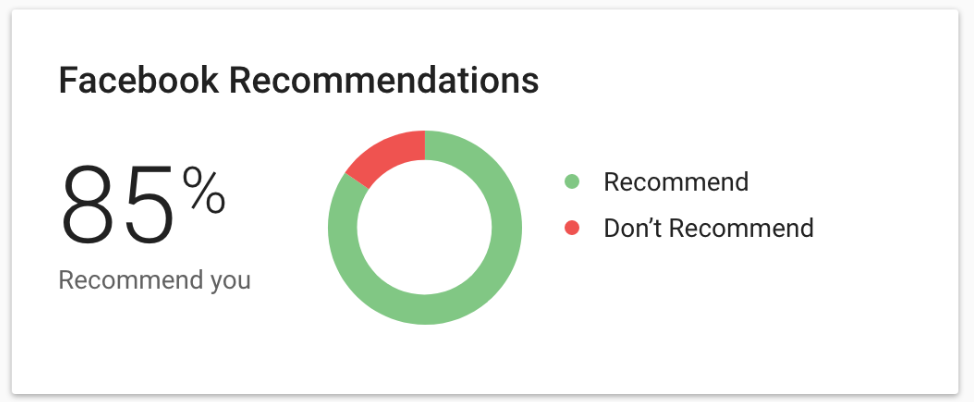Goodbye Stars, Hello Facebook Business Recommendations
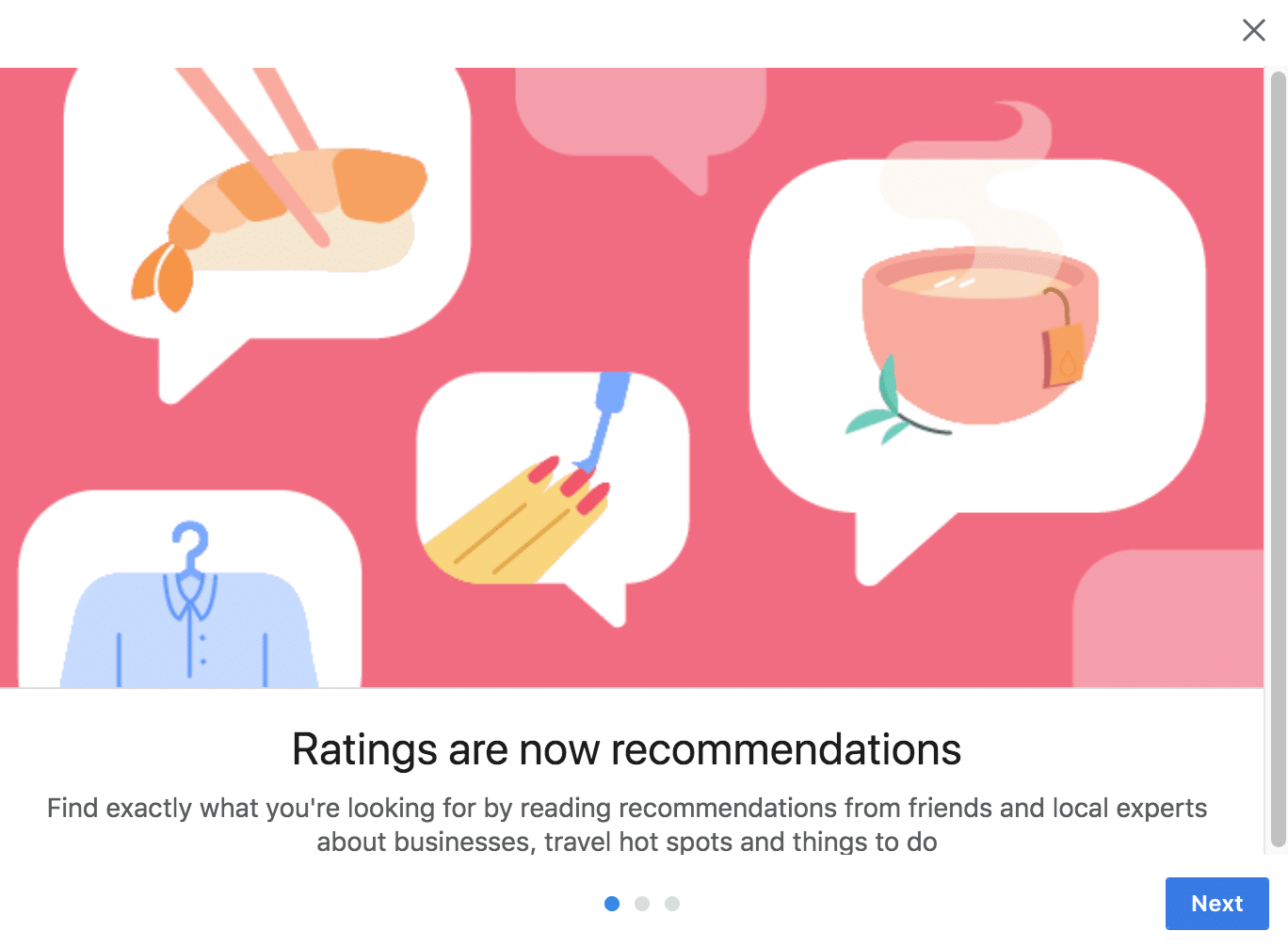
Facebook Recommendation Updates
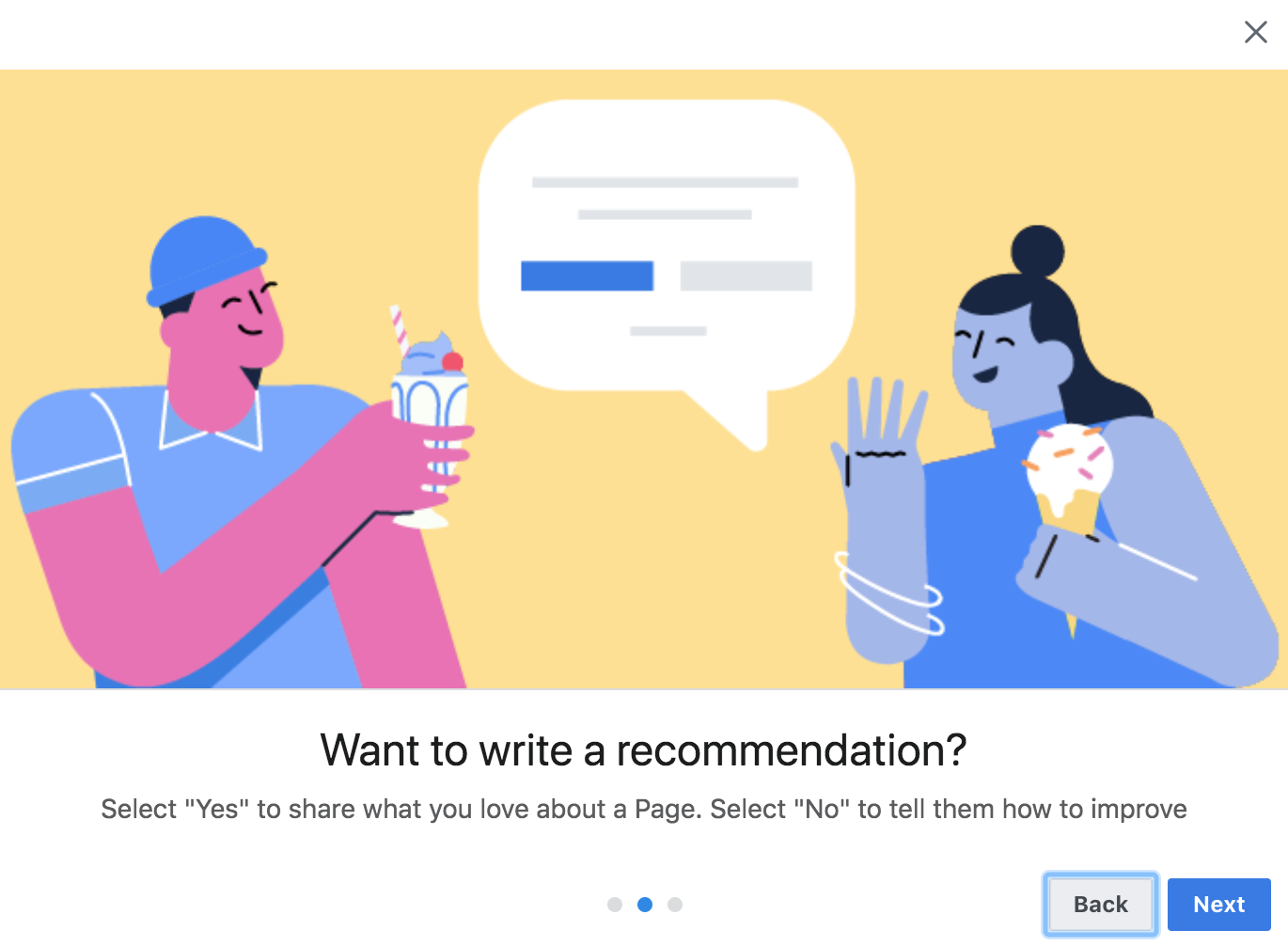
Ratings are now Recommendations! Here's what you need to know about the change:
- Recommendations will now be posted directly onto the business Pages (in place of review/star rating)
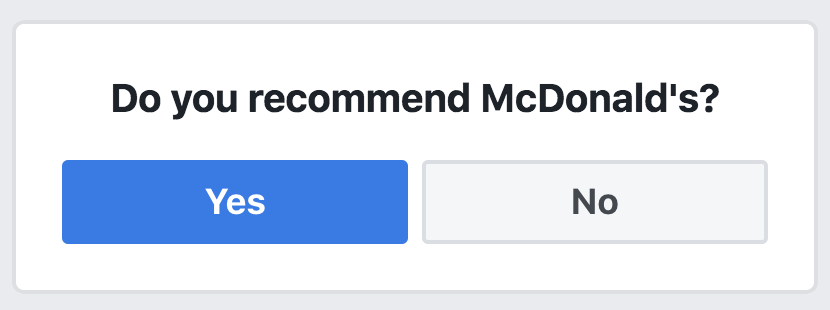
- Legacy reviews are being changed to “Recommended” or “Not Recommended”
- Legacy 1 and 2-star ratings are “Not Recommended”
- Legacy 4 and 5-star ratings are “Recommended”
- Legacy 3-star ratings show up as “Reviewed”
- Legacy star ratings no longer appear in star format, but under “opinion” score
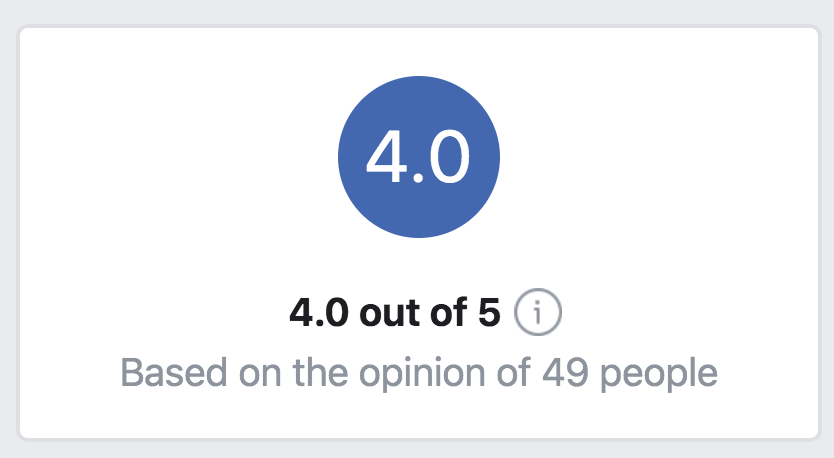
- Updated to 25 minimum character count to promote leaving more detailed recommendations/reviews
- Newsfeed Recommendations posted by your network will influence Recommendations to the business page
- Recommendations can have a suite of tags and rich media (photos) attached to them
It's obvious from these updates that Facebook is making an effort to give consumers (and businesses) richer, more valuable recommendations on which to base their purchase decisions. More weight will be added to each recommendation with a minimum character count and rich media additions such as tags and photos.
What the Facebook Recommendation Updates Mean for Businesses
1. Businesses cultivate a consistent story about their brand
Facebook Recommendations will now help build up a consumer-generated brand story for businesses right on their Page. New detailed Recommendations of the business will give a better insight into what you can expect from that business based on other consumers' experiences. Before Recommendations, consumers would talk about a business in private channels or status updates. A friend on Facebook would ask “Where’s a good place to get my windshield replaced?” and their network would reply with various businesses they recommended. In October of 2016, Facebook added the first slice of Recommendations and users started to see them appear in their news feed when friends/family were looking for suggestions for local products/services.

2. Improved reporting of spam & fraudulent Recommendations
Facebook is prioritizing the need to get rid of spam reviews and make it easier for businesses to report fraudulent business feedback. In addition, the minimum character requirements allow for reviews to be more personalized and limit the amount of one-click-one-star spamming that was seen on Facebook in the past.
3. Emerging business themes from Recommendation tags
New tagging functionality will help provide an overview of service performance to local businesses. Adding sentiment tags or related keyword tags to Recommendations will allow themes to emerge from customer feedback. This makes it easier for businesses to find out what they are known for and identify trends.
What Facebook Recommendation Updates Mean for Consumers
1. Provide more specific and detailed recommendations to your network
Like a business? Do you recommend them? This is what you’ll see now.
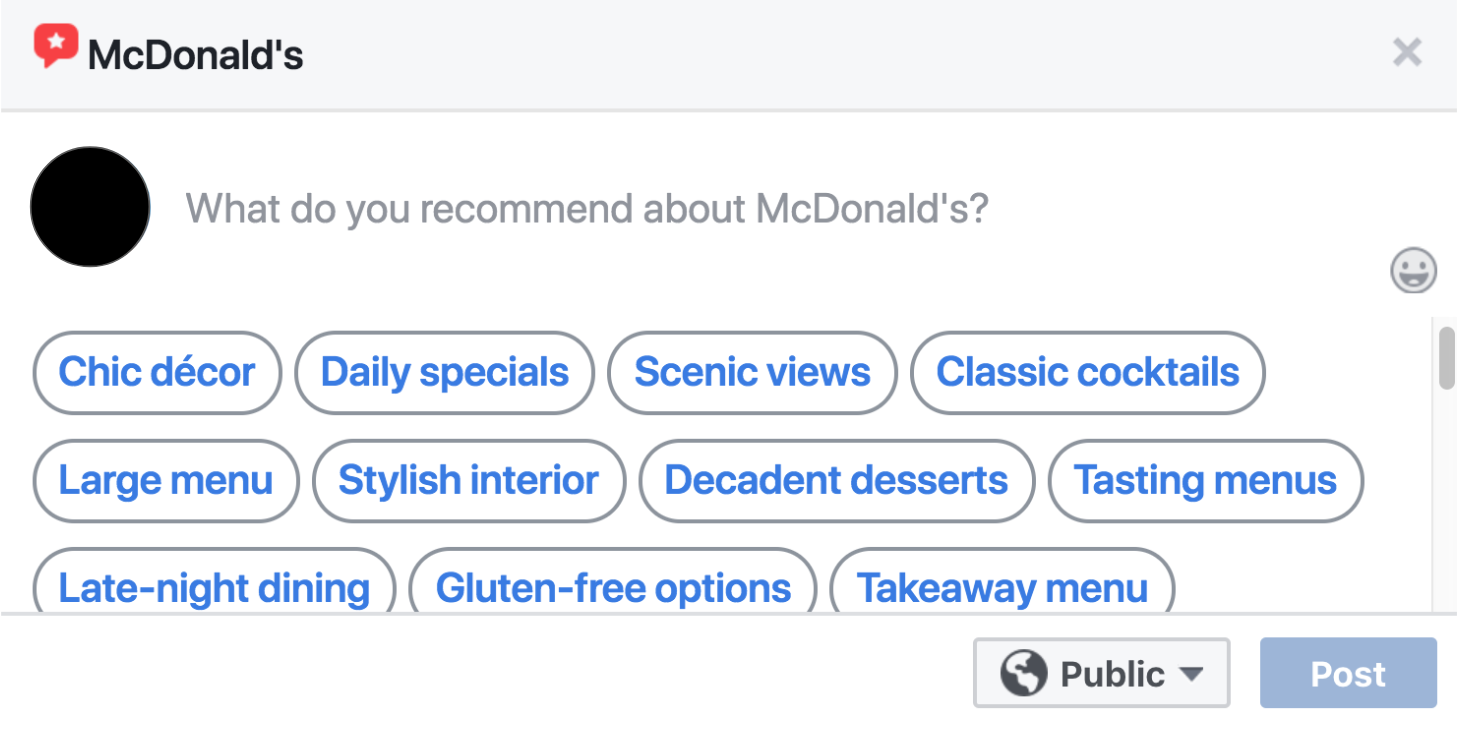
2. Give context into how a poorly-performing business could improve
Don’t like a business? Do you not recommend them? This is what you’ll see now.
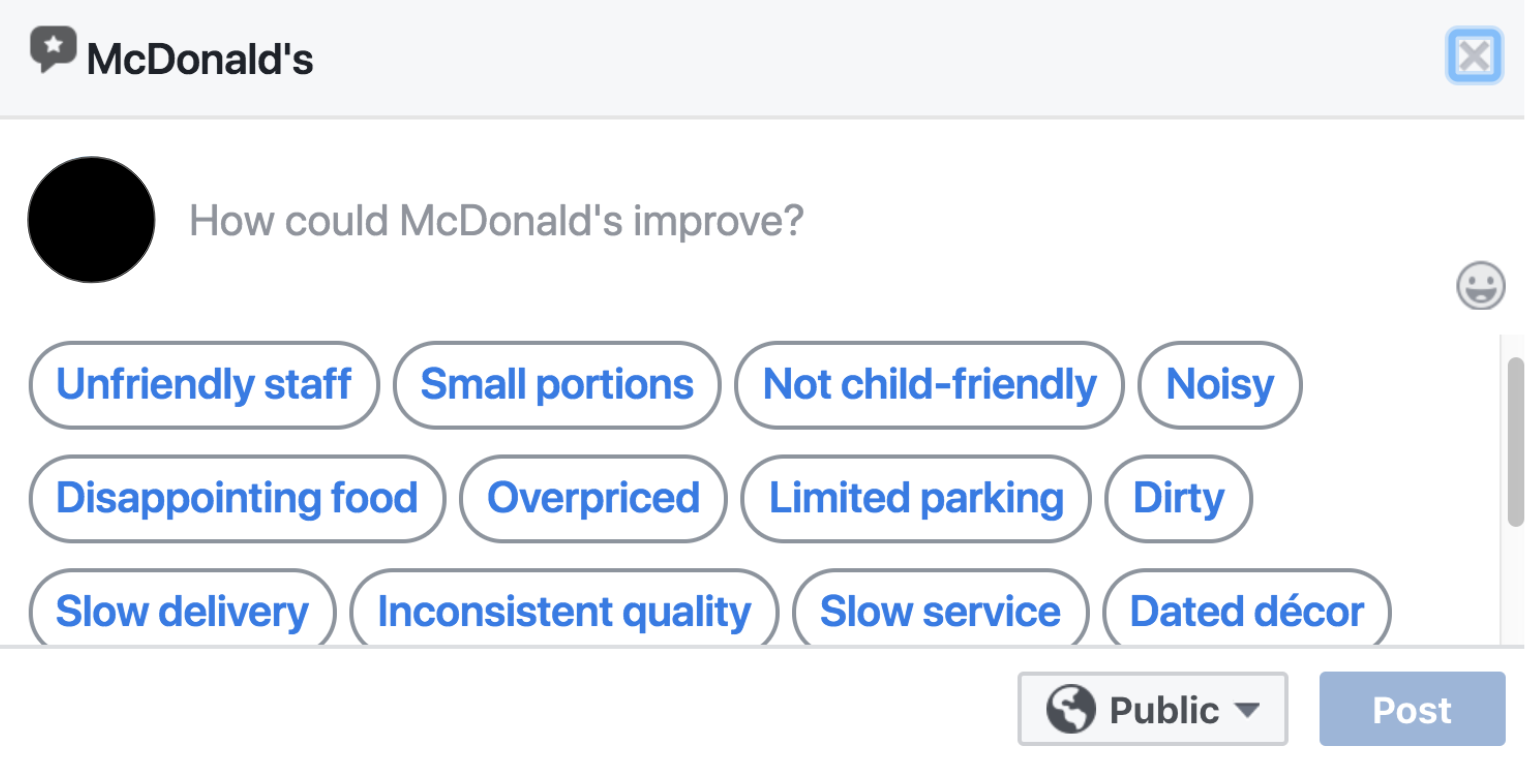
The New World of Digital Word-of-Mouth Marketing
Tracking Recommendations with Reputation Management
